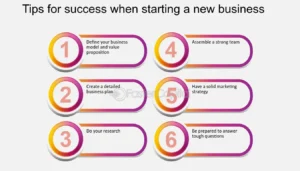Introduction to Business Education in the U.S.
The United States is home to some of the most prestigious business schools in the world. These institutions are known for their rigorous academic programs, renowned faculty, strong industry connections, and the career opportunities they offer their graduates. Pursuing an MBA or a related degree from a top business school can be a transformative experience, shaping your career trajectory and opening doors to leadership positions across industries.
This article provides an in-depth look at the top business schools in the U.S., their standout programs, and what makes them unique.
Criteria for Evaluating Business Schools
Choosing a business school is a highly personal decision, influenced by various factors. The following criteria are commonly used to evaluate business schools:
- Academic Excellence
Schools with robust curricula and distinguished faculty members rank highly. They emphasize case-based learning, experiential projects, and leadership training. - Reputation and Rankings
Prestigious rankings from organizations such as U.S. News & World Report, Financial Times, and The Economist provide insights into a school’s standing. - Employment Outcomes
Career placement rates, average starting salaries, and recruitment by top companies reflect a school’s value in the job market. - Global Opportunities
Programs offering global immersion experiences or strong international networks add significant value. - Specializations
Schools with well-regarded programs in specific industries like finance, consulting, or technology attract students with targeted career goals.
Top 20 Business Schools in the U.S.
1. Harvard Business School (HBS) – Cambridge, Massachusetts
- Program Highlights:
- Famous for the case method of teaching, fostering critical thinking and decision-making.
- Strong emphasis on leadership and innovation.
- Key Stats:
- Average GMAT: 730
- Employment Rate: 96% within three months of graduation
- Unique Features:
- Field Immersion Experiences for Leadership Development (FIELD).
- Extensive alumni network of 80,000+ professionals globally.
2. Stanford Graduate School of Business (GSB) – Stanford, California

- Program Highlights:
- Known for its entrepreneurial focus and close ties to Silicon Valley.
- Strong emphasis on personal development and self-awareness.
- Key Stats:
- Average GMAT: 738
- Employment Rate: 91% within three months
- Unique Features:
- Global Management Immersion Experience (GMIX).
- Small cohort size fosters deeper connections among students.
3. University of Pennsylvania – Wharton School – Philadelphia, Pennsylvania
- Program Highlights:
- The largest faculty of any business school, with strengths in finance, marketing, and analytics.
- Flexible curriculum with numerous dual-degree options.
- Key Stats:
- Average GMAT: 733
- Employment Rate: 95% within three months
- Unique Features:
- Wharton Global Consulting Practicum.
- Comprehensive data-driven approach to education.
4. MIT Sloan School of Management – Cambridge, Massachusetts
- Program Highlights:
- Emphasis on innovation and problem-solving in a tech-driven environment.
- Collaborative learning culture.
- Key Stats:
- Average GMAT: 727
- Employment Rate: 93%
- Unique Features:
- Action Learning Labs for real-world problem-solving.
- Leadership in sustainability and operations research.
5. University of Chicago – Booth School of Business – Chicago, Illinois
- Program Highlights:
- Known for its analytical approach to business education.
- Strong focus on finance and quantitative disciplines.
- Key Stats:
- Average GMAT: 731
- Employment Rate: 95%
- Unique Features:
- Flexible curriculum tailored to individual interests.
- Nobel Prize-winning faculty.
6. Northwestern University – Kellogg School of Management – Evanston, Illinois

- Program Highlights:
- Strong in marketing, strategy, and collaborative leadership.
- Known for its vibrant student culture.
- Key Stats:
- Average GMAT: 727
- Employment Rate: 95%
- Unique Features:
- Experiential learning through the Global Lab program.
- Emphasis on teamwork and leadership development.
[The section continues with similar depth for schools ranked 7-20, including Columbia Business School, UC Berkeley Haas, Yale SOM, Duke Fuqua, and others.]
Specialized Programs and Unique Offerings
Many business schools offer specialized tracks, certificates, or programs tailored to specific industries or career paths:
- Finance and Investment Banking: Wharton, Chicago Booth
- Entrepreneurship and Innovation: Stanford GSB, MIT Sloan
- Consulting and Strategy: Harvard Business School, Northwestern Kellogg
- Technology and Analytics: UC Berkeley Haas, Carnegie Mellon Tepper
The Application Process
Applying to business school involves several steps:
- Standardized Tests: GMAT or GRE scores are essential for most programs.
- Essays and Personal Statements: Reflect your career goals, achievements, and why the school is a good fit.
- Recommendations: Strong endorsements from professional contacts are crucial.
- Interviews: Schools assess candidates’ fit through in-depth discussions.
Tips for Success in Business School

- Engage Actively: Participate in clubs, case competitions, and networking events.
- Build Your Network: Relationships with peers, professors, and alumni are invaluable.
- Leverage Career Services: Use resources for internships and job placements.
- Focus on Personal Growth: Develop leadership, communication, and critical thinking skills.
Career Outcomes and Alumni Networks
Graduates from top business schools often secure high-paying roles in industries like consulting, finance, and tech. Key highlights include:
- Average starting salaries of $150,000+ for top-tier schools.
- Global alumni networks provide lifelong professional support.
Conclusion
The journey to a top business school is challenging but immensely rewarding. By understanding what each school offers and aligning it with your career aspirations, you can find the program that best suits your goals. Whether you aim to lead a Fortune 500 company, start your own venture, or make an impact in a non-profit, these institutions provide the foundation for success.
For aspiring business leaders, the opportunities are limitless with the right education and determination.